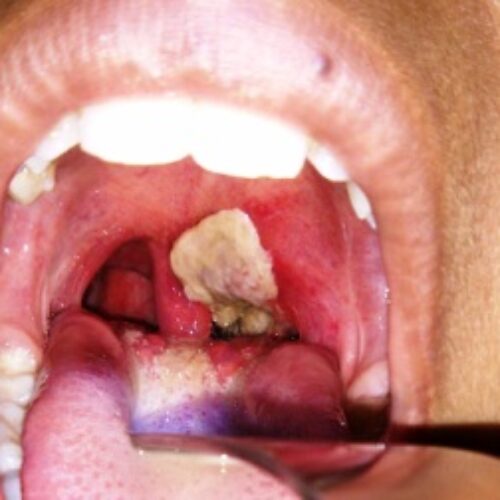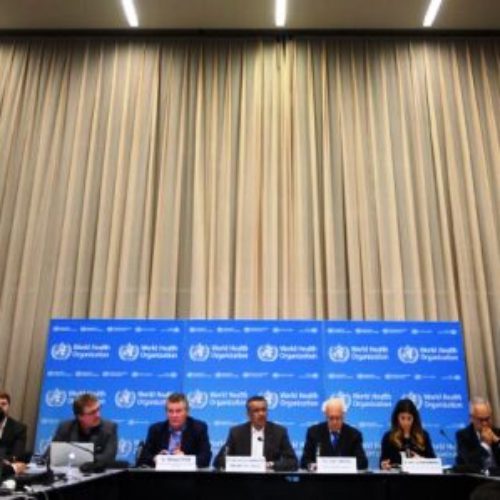NHIS Council delists 23 Health Management Organisations
… Says only 1 out of 57 HMOs in Nigeria fit for accreditation
ABUJA – The National Health Insurance Scheme Governing Council Thursday announced that it has delisted 23 Health Management Organisations, (HMOs) for failing to meet up with the minimum operational criteria expected of them.
Chairperson of the board, Dr. Enyantu Ifenne also disclosed at a press briefing that only one out of the 57 HMOs in the country met all requirements for granting them full accreditation for operation.
The revelation was part of rots being uncovered in the system by the scheme’s new management and Council.
Following nationwide evaluation of the HMOs by NHIS in 2017 and subsequent White Paper on their status, the government recommended delisting of 23 of the HMOs, while 33 others were given provisional accreditation, chairperson of the Council, Dr Ifenne, said.
She said sections 6 (a), (b), (c) and (j) of the NHIS Act empowers the scheme to register HMOs and health care providers under the scheme; issue appropriate guidelines to maintain the viability of the scheme; approve format of contracts proposed by the HMOs for all health care providers; and doing such other things as are necessary or expedient for the purpose of achieving the objectives of the scheme under its Act.
Ifenne said despite lofty aim of government on the NHIS, it had only covered three percent of the nation’s population, nearly a decade and a half when it was created. She said the new leadership structures of the NHIS were out to redirect the institution to make it achieve the mandates for which it was established.
Justifying the actions of the NHIS on the HMOs, Ifenne said section 19 (3) and (b) of the NHIS Act states that “the registration of an organization under the scheme – ‘may be renewed at the expiry of every registration, but that no registration shall be renewed unless the organization concerned has complied with guidelines issued under this Act.”
She explained that in 2017, the scheme embarked on reaccreditation exercise for all HMOs in the country. Licence for each HMO is valid for two years, and, according to her, as at the time of commencement of the re-accreditation exercise, the licenses of all 57 HMOs had expired in Dec. 2016; some as far back as 2013.
Out of the 57 HMOs, 38 have formal sector enrollees, while 19 have only private sector enrollees, she stated.
Critical irreducible minimum for registration according the Council are registration with Corporate Affairs Commission, adequacy of paid-up share capital; current asset (≥55%), : fixed asset ratio (≤45%), shareholders composition, company reserve, integrity of shareholders, board of directors composition.
Others are current tax clearance of company, current tax clearance of all directors, appointment of an auditing firm, evidence of audited account/statement of account of company, appointment of a company secretary, compliance with PENCOM ACT, possession of FG and PII from authorized sources, annual returns from CAC, and 100% letters of non-indebtedness from HCFs.
Results of assessment test conducted for the HMOs showed that 11 HMOs scored above 70%, 40 scored between 50% – 70%, and six scored below 50%, the Council said.
HMOs that scored above 50% and met the irreducible minimum requirements are recommended for full reaccreditation. The only HMO in this category is Defence Health Maintenance Limited (022).
HMOs that scored 50% and above and have met the critical requirements but have one or more outstanding irreducible requirements are recommended for provisional reaccreditation.
The HMOs for provisional reaccreditation are 33. Provisional reaccreditation is recommended to be for a maximum of three months during which the HMOs should meet the outstanding requirements listed against them. Failure to meet the requirements shall result in loss of accreditation, Ifenne threatened.
Part of corrupt practices among the HMOs, as revealed by the Council, was illegal merger with one another or related organizations. Ifenne said an HMO (Total Health Trust) was discovered to have been acquired, and majority of its shares (399,999,999 out of 400,000,000) was owned by a Liberty Holdings of South Africa against the Act of the scheme.
Other issue plaguing the scheme is bankruptcy and huge indebtedness among HMOs. Ifenne said one HMO,. Lifeworth HMO was experiencing negative reserve, and the organization had been considered by the scheme to be technically bankrupt.
She said there were yet other 13 HMOs with negative reserves that had not eroded into the shareholders’ fund. The 13 HMOs are considered for provisional reaccreditation but are to eliminate the negative reserve within the period of provisional reaccreditation, she noted.
She lamented that the scheme had been inundated with complaints of crippling debts owed health care facilities by HMOs. “HMOs were therefore required to submit letters of non-indebtedness from all facilities in their network, as evidence of consistent and prompt payment of capitation to the facilities and/or settlement of fee-for-service claims.
“HMOs submitted letters of non-indebtedness from some facilities in their network. Six HMOs did not submit any letter of non-indebtedness from any healthcare facility, implying they are indebted to all the facilities under their network.
“All the HMOs are indebted to healthcare facilities in varying degrees. The six HMOs that did not submit any letter of non –indebtedness are therefore, not considered for reaccreditation.
“HMOs that submitted some letters of non-indebtedness are considered for provisional re-accreditation. They are required to clear all indebtedness within the period of the provisional reaccreditation,” she said.
She explained that HMOs are expected to return all unpaid capitations (and associated fee-for-service) to NHIS; make 1% remittance on Private Health Insurance Premiums to NHIS.
She further revealed that 32) HMOs are indebted to the scheme, and that they have been considered for provisional reaccreditation provided they meet all other requirements. They are also to pay the debt owed NHIS (or provide proof of having paid such debts) within the period of provisional reaccreditation.
In his remark, the NHIS Executive Secretary, Prof Usman Yusuf, said since inauguration of the Council on March 7 this year, the had hit the ground running.
“In the first week, they met with NHIS management, staff and union. Their message to us all is that of healing and reconciliation, they reminded us that we need to strive to change the narrative of recent news on the NHIS, that we should not be distracted from the only purpose that the NHIS exists which is to serve our people. They also met with HCPs (health care providers) to hear their views on how to make NHIS serve enrollees better. They have also reached out to the HMH and plan to meet HMOs in the coming week,” he said.
Yusuf said the Council was the mediator in the protests that greeting his reinstatement by President Muhammadu Buhari, and that peace has fully returned to the scheme.
Members of the Council who spoke at the event assured that no form of corruption would be allowed in the scheme under their watch.
























0 Comments
No Comments Yet!
You can be first to comment this post!